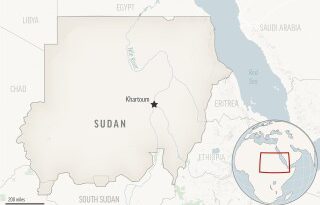U.S. officials say Soleimani’s death could deter Iranian violence
Washington (Reuters) – U.S. officials said the U.S. drone strike that killed Iranian commander Qassem Soleimani on Friday might deter, rather than provoke, Iranian violence against U.S. targets despite Tehran’s vow of retaliation.
Speaking to reporters, the officials cast the strike that killed Soleimani as an act of self defense against imminent attacks that could have killed hundreds of Americans in Iraq, Syria, Lebanon and elsewhere.
Multiple U.S. analysts said they expect Iran to retaliate, saying it was likely to take its time in deciding how to respond and would likely do so in an “asymmetric” manner that would not lead to all-out war.
While acknowledging that Soleimani’s killing could trigger a fresh cycle of violence, one senior U.S. official said at the least it would deprive Tehran of one of its wiliest commanders.
“We cannot promise that we have broken the circle of violence,” this official said on condition of anonymity.
“From my experience with Qassem Soleimani … it is less likely that we will see this now than it was before and, if we do see an increase in violence, it probably will not be as devilishly ingenious,” he added.
“Weakness invites more aggression,” said a second U.S. official, saying he did not expect Iranian retaliation “because we are speaking in a language the regime understands.”
U.S.-Iranian relations have been vexed for the four decades since the Islamic Revolution that swept the Shah of Iran, a U.S. client, from office and ushered in a clerical leadership that took 52 Americans hostage at the U.S. embassy in Tehran.
Former U.S. President Barack Obama ushered in a rapprochment by striking a 2015 agreement with Iran under which Tehran agreed to curb its nuclear program in return for access to the global economy. Relations soured, however, when U.S. President Donald Trump abandoned that pact in 2018 and reimposed U.S. sanctions.
Washington has long viewed Soleimani as an enemy with U.S. blood on his hands, including during the Iraq war when hundreds of U.S. soldiers were killed by Iranian-made explosive devices. One U.S. official told reporters the leader of the Revolutionary Guards’ overseas arm brought about 608 U.S. deaths in Iraq.
The first U.S. official said the U.S. government followed the same criteria as it had in past cases where it had decided to kill a foreigner it believed was going to attack Americans.
These include determining it had “overwhelming evidence that somebody is going to launch a military or terrorist attack” and that it had no judicial means to have the person arrested.
“There’s no way anybody was going to stop Qassem Soleimani in the places he was running around,” this official said. “And so, you take lethal action against him.”


